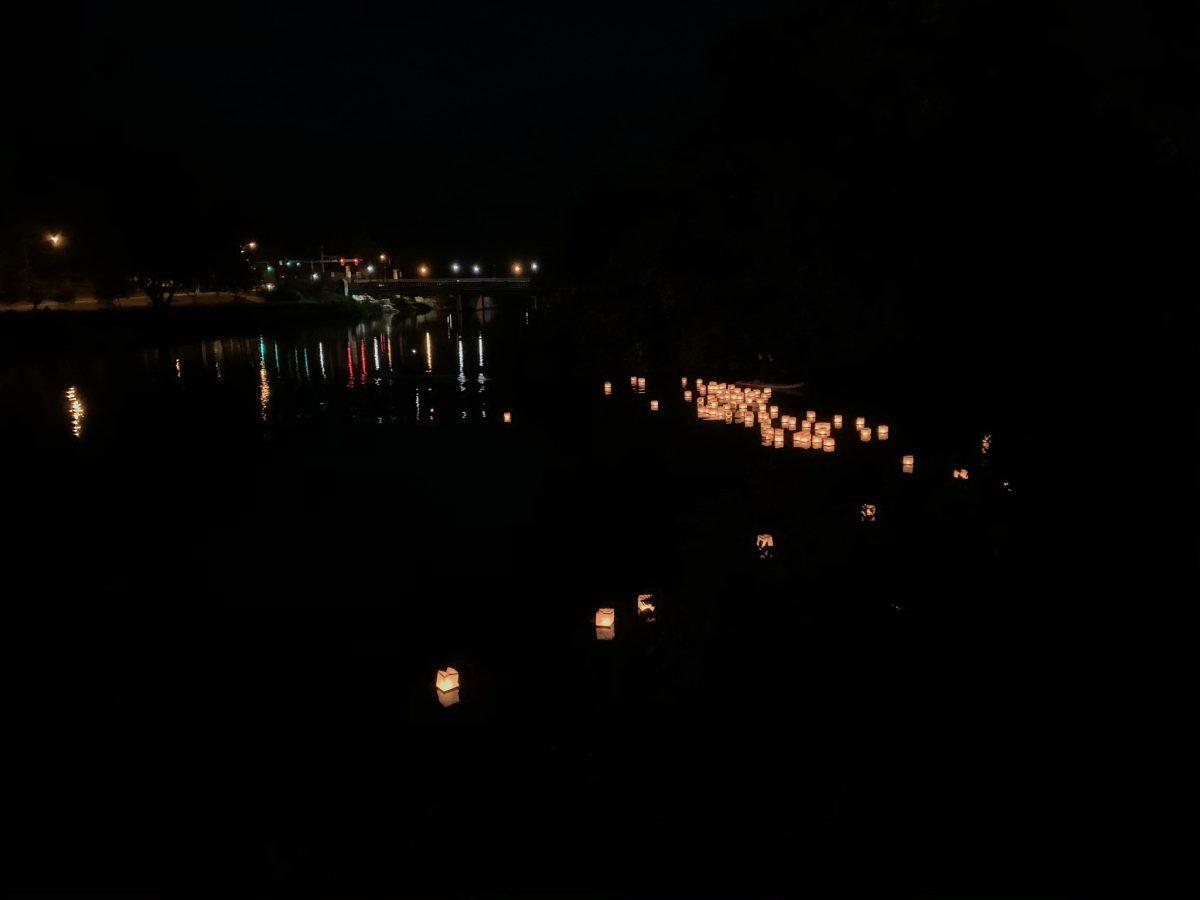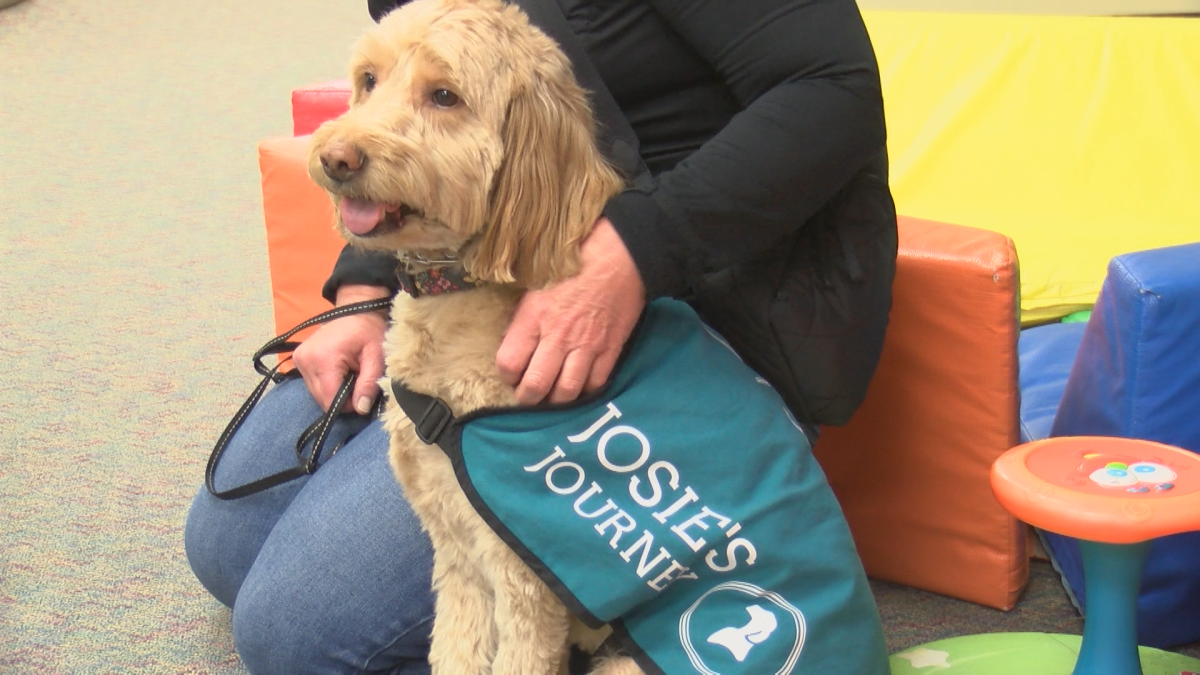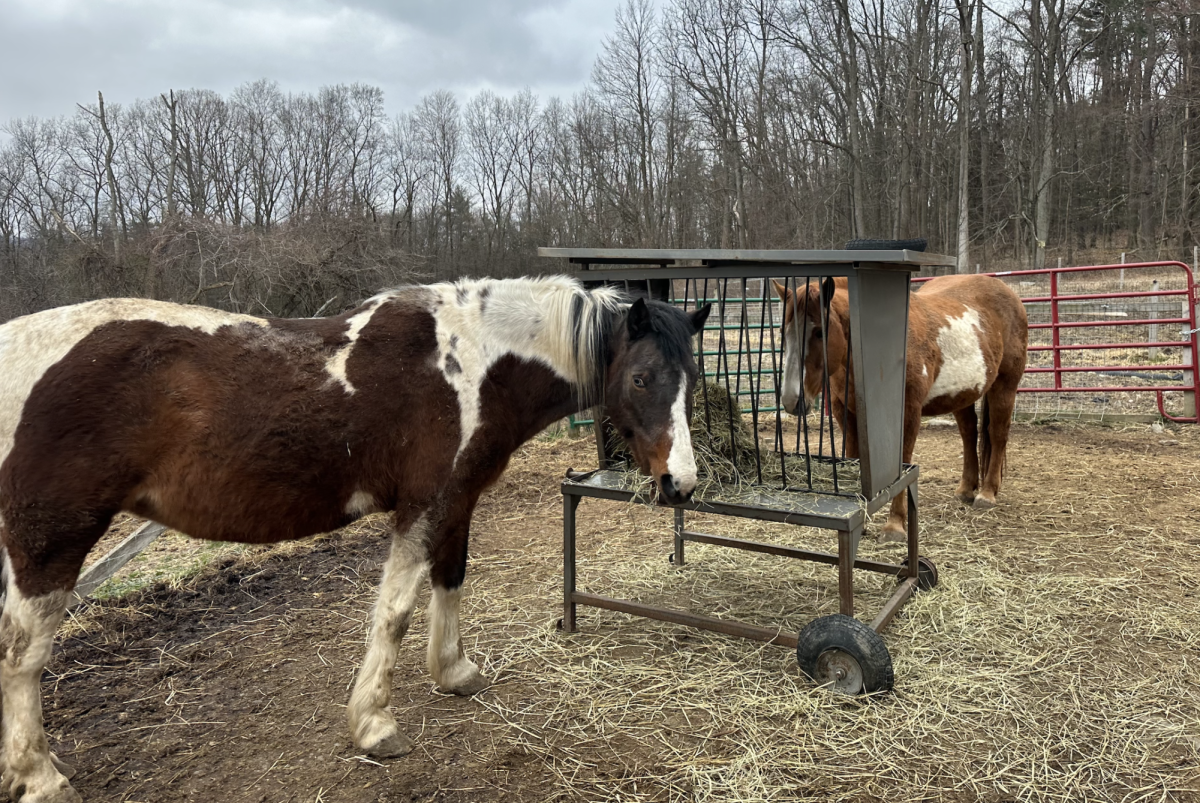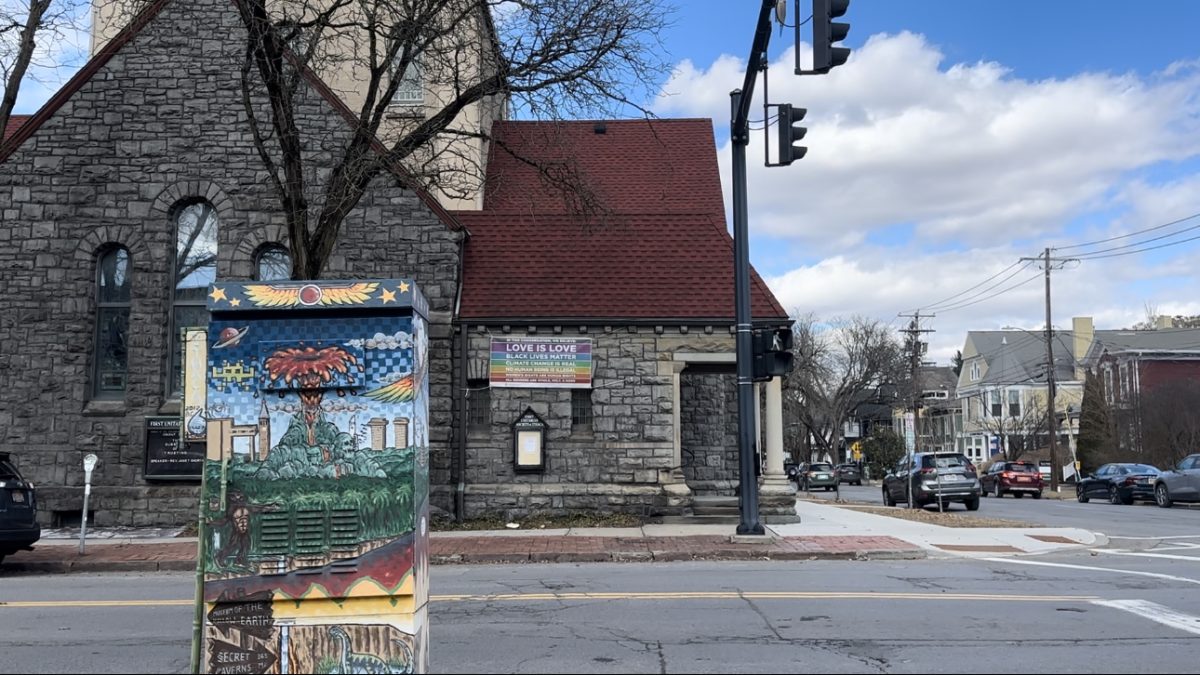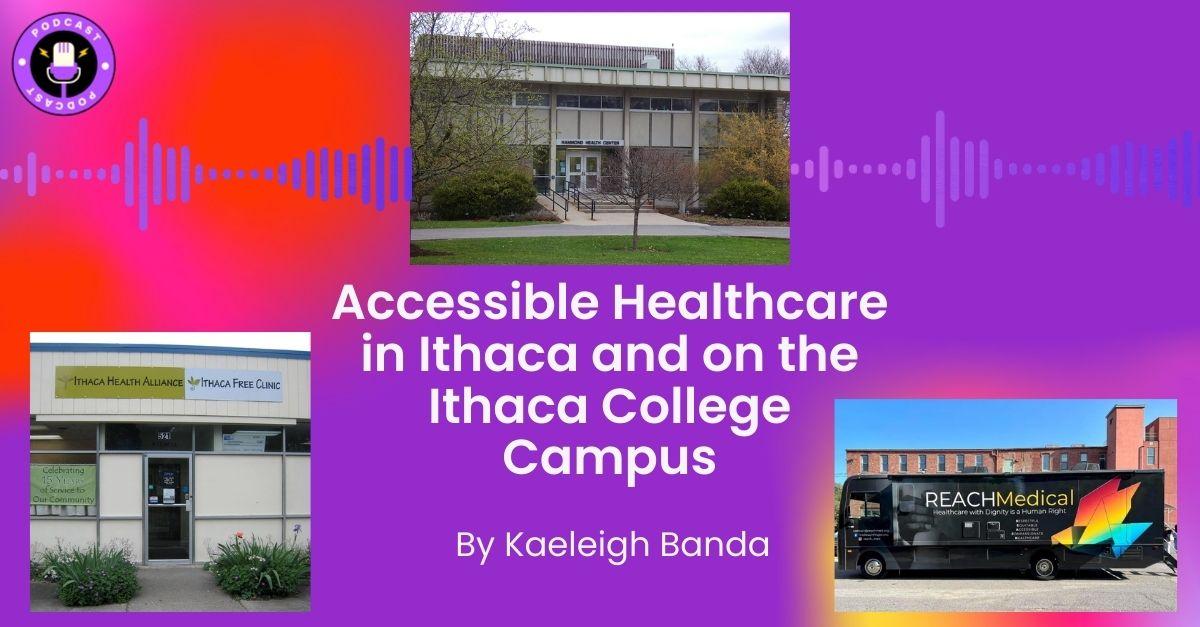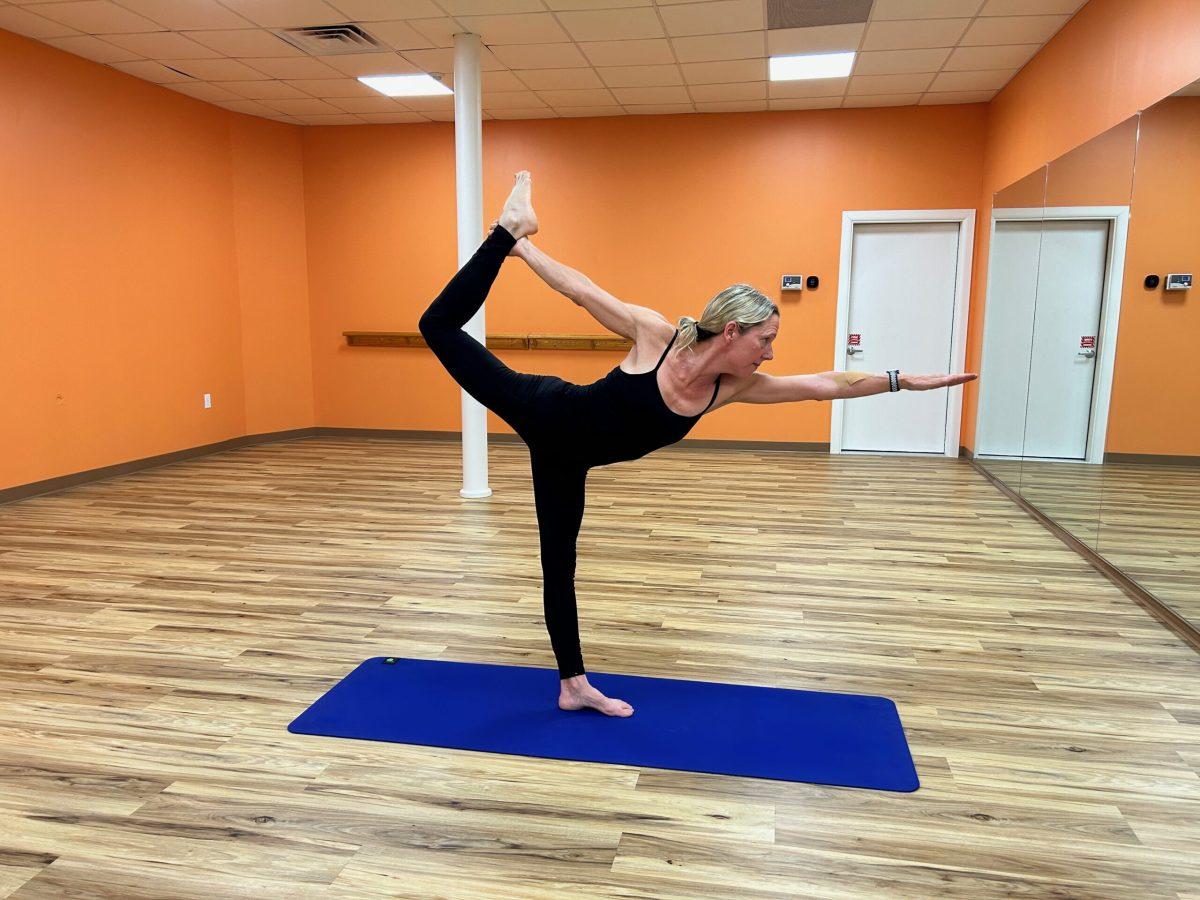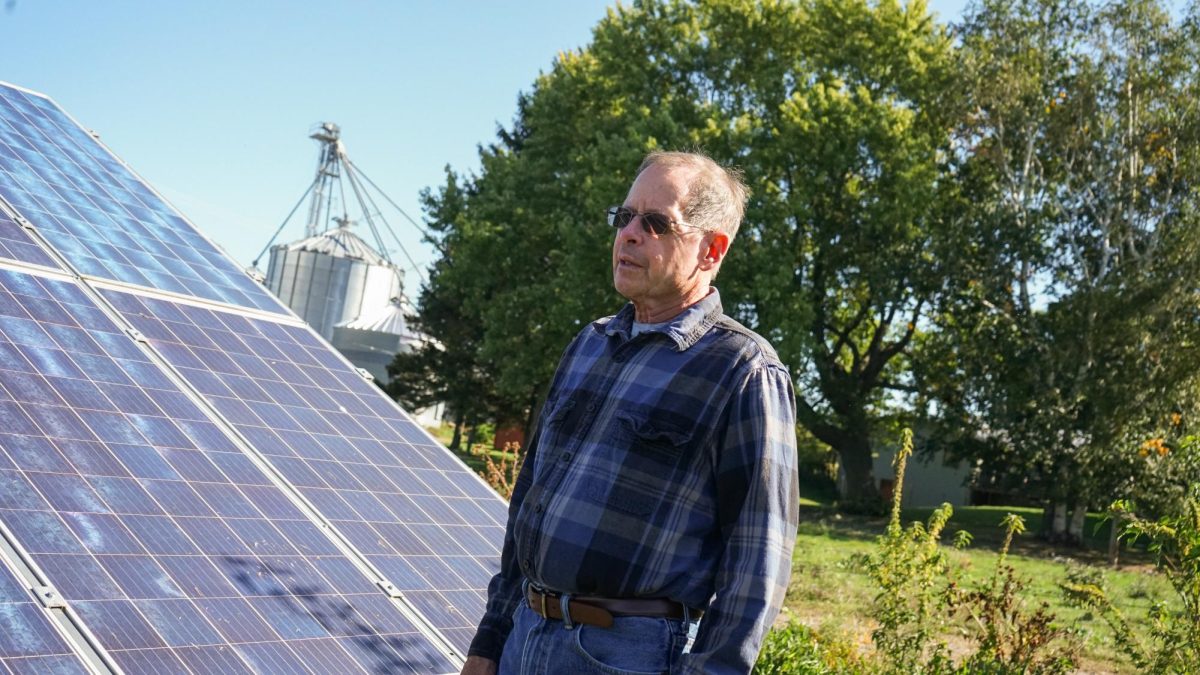Hundreds of lanterns twinkled against the inky water as they floated down the Cayuga Inlet on a chilly October night. Marked with messages like, “Forever in our hearts” and “My peace I give to you,” the lanterns commemorated individuals who have died as a result of homelessness, addiction, mental illness and suicide.
Second Wind Cottages, a local non-profit that supports individuals who are homeless, held its second annual Lantern Festival Oct. 3. Carmen Guidi, founder and director of Second Wind, said the goal of the event was to bring attention to issues surrounding homelessness and addiction.
“It is a fundraiser for us, but it’s more to raise awareness and get people pulled into the work,” he said. “All of these non-profits in our community need money, but we need people too.”
On her white paper lantern, Ithaca resident Margaret Heath wrote in green marker, “Jeffrey, Love you forever. Free with God. You are missed.”

Heath said her nephew, Jeffrey — who she raised like a son — hanged himself seven years ago after battling with addiction.
“Jeffrey was an amazing person. He was an artist,” Heath said. “Jeffrey fought as long as he could and he took his life and I want his life remembered. If the most I can do is put his name on a lantern and share his story with the Ithaca people, that’s what I’ll do.”
Guidi said proceeds from the event will go toward Second Wind’s operating expenses, including the construction of the Second Wind Dryden House, a new multi-residential facility for homeless and at-risk adult women and their children. Second Wind currently houses 18 residents in its cottages, which are for formerly homeless men.
“Our mission is to house and walk with people toward restored lives,” Guidi said. “The walk is the big one, because building a house for a homeless person? Easy. Nothing to it. Walking with them until they restore their lives, much more difficult.”
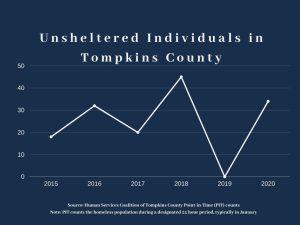
Across the country, unsheltered homelessness, meaning sleeping outside or in places not meant for human habitation, has grown by 22 percent over the last five years.
Sandra Sorensen, executive director of Second Wind, said the event brought in $6,050 so far. Collegetown Bagels and Ithaca Bakery, two of the sponsors from the event, are selling virtual lanterns throughout October. Sorensen said the goal is to raise $10,000.
Like many non-profit organizations, Second Wind has been negatively impacted by the pandemic. A survey conducted by Charity Navigator and Reuters News found that 83% of respondents representing non-profit organizations were financially suffering during the pandemic, and 64% had to cut back on programs.
Sorensen said that during the first few weeks of stay-at-home orders in March, many of the Second Wind residents lost their jobs, in-person mental health support and job training.
“I’ve seen the most vulnerable in our community suffer the worse, and that really infuriates me,” Guidi said. “We’ve seen guys really struggle.”
Guidi said that one of the most important aspects of Second Wind is its volunteers, who help build the cottages for residents. Community members of all backgrounds would interact with each other, an experience that Guidi said broke down stigmas of homeless individuals. However, due to the pandemic, the number of volunteers has decreased. Sorensen said that with the lack of volunteers, the three staff members had to quickly shift to provide extra support to the men.
“It was as if everything they had worked hard to achieve and that we had worked hard to offer was just pulled out from under them,” Sorensen said. “We saw increased depression, isolation, loss of hope and many relapses. We are still working hard to support our guys back onto healthy paths.”
Scott Goodrich, a resident at Second Wind, said he and the other residents had a difficult time when the volunteers left. He volunteered to help set up the Lantern Festival.
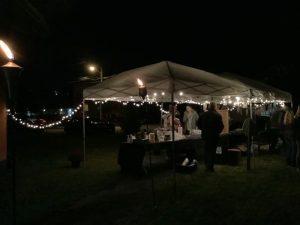
“Because they do so much for us, anything they ask, I try to pick up,” he said.
Live music from local band, Leo and the Maydays, played as the approximately 30 attendees sat in folding chairs, spaced six feet apart, next to the inlet. Sorensen said that planning an event during a pandemic involved a lot of preparation, like ensuring masks were worn and food was not self-serve. She said that while she wanted to sell all 50 tickets — the event was capped at this number to ensure COVID safety precautions — she hopes that next year, numbers will not have to be limited.
James Breslin, a homelessness activist and keynote speaker at the event, spoke about the factors that lead to homelessness in Ithaca. He said that Ithaca is one of the most expensive places to live in upstate New York, with single bedrooms costing approximately $1,000 per month. According to the Joint Center for Housing Studies at Harvard University, 10.9 million households spend more than 50% of their income on housing. In an economic crisis, like one that is brought on by the pandemic, the loss of a job or hours at work could lead to homelessness.
Breslin also cited the heightened struggles that individuals with mental health issues face during the pandemic. In June, 40% of adults in the United States reported struggling with mental health or substance abuse, according to the CDC. The CDC also found an increased rate of suicidal ideation among respondents.
“There’s an old proverb that says that if a problem has no solution, it’s not a problem, it’s a fact,” Breslin said. “I think for many communities, they have to decide whether homelessness is a problem or it’s a fact. I believe, and Second Wind believes, that homelessness can be solved one person at a time.”

